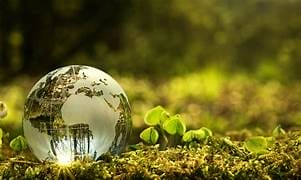Environmental Science: Understanding and Solving the World’s Environmental Challenges
September 17, 2024 2024-09-13 10:44
Environmental Science: Understanding and Solving the World’s Environmental Challenges
Environmental science is a multidisciplinary field that combines biology, chemistry, geology, and social sciences to study the environment and develop solutions to some of the world’s most pressing ecological issues. From climate change to biodiversity loss, pollution, and resource depletion, environmental science provides critical insights that help humanity address these complex challenges. This article explores the key areas of environmental science, discusses sustainable solutions to environmental issues, and highlights the role of individuals in promoting environmental sustainability.
The Importance of Environmental Science in Addressing Global Environmental Challenges
As human activities continue to impact the planet, environmental science plays an increasingly crucial role in understanding these effects and finding ways to mitigate them. Some of the most significant environmental challenges we face today include:
- Climate Change: Driven by greenhouse gas emissions, climate change is causing global temperatures to rise, leading to more extreme weather events, rising sea levels, and disruptions to ecosystems.
- Deforestation: The clearing of forests for agriculture, urban development, and logging is contributing to habitat loss, species extinction, and increased carbon dioxide in the atmosphere.
- Pollution: Air, water, and soil pollution, caused by industrial activities, transportation, and waste, are damaging ecosystems and harming human health.
- Resource Depletion: Overuse of natural resources like water, fossil fuels, and minerals is leading to their depletion, which threatens the future availability of these essential materials.
- Biodiversity Loss: Human activities such as habitat destruction, pollution, and climate change are leading to the extinction of species at an unprecedented rate.
Understanding these challenges through environmental science is critical to developing effective strategies for environmental conservation and sustainability.
Key Areas of Environmental Science
Environmental science encompasses several key areas that are essential for addressing global environmental challenges:
- Ecology: The study of ecosystems and the relationships between living organisms and their environments.
- Geology: Examining the Earth’s physical structure and processes, such as erosion, earthquakes, and volcanic activity, which shape the planet and its ecosystems.
- Atmospheric Science: Studying the atmosphere and its processes, including weather patterns, air quality, and the effects of human activities on climate change.
- Environmental Chemistry: Investigating how chemicals interact with the natural environment and the impact of pollutants on air, water, and soil quality.
- Conservation Biology: Focusing on the protection and restoration of biodiversity, including endangered species and ecosystems.
By integrating knowledge from these areas, environmental scientists can develop comprehensive approaches to solve environmental problems.
Sustainable Solutions to Environmental Issues
Addressing environmental challenges requires innovative and sustainable solutions. Here are some of the most promising strategies for mitigating environmental damage:
- Renewable Energy: Transitioning from fossil fuels to renewable energy sources such as solar, wind, and hydropower can reduce greenhouse gas emissions and decrease dependence on finite resources.
- Conservation Efforts: Protecting natural habitats, establishing wildlife reserves, and promoting biodiversity can help preserve ecosystems and prevent species extinction.
- Sustainable Agriculture: Implementing practices like crop rotation, organic farming, and reduced pesticide use can minimize the environmental impact of food production while maintaining soil health.
- Pollution Prevention: Reducing emissions from industries, vehicles, and agriculture through technological innovations and regulatory measures can help combat air and water pollution.
- Water Conservation: Implementing efficient irrigation systems, reducing water waste, and protecting freshwater ecosystems are critical for ensuring the sustainable use of water resources.
- Waste Management: Promoting recycling, composting, and the reduction of single-use plastics can minimize the environmental impact of waste and prevent pollution of oceans and landfills.
These solutions offer a path toward a more sustainable future, where economic development and environmental protection go hand in hand.
Long-Tail Keywords for Improved SEO
Incorporating long-tail keywords into content can improve search engine rankings by targeting specific user queries. Here are some strategic long-tail keywords related to environmental science:
- Sustainable solutions for environmental conservation: Exploring innovative strategies for protecting ecosystems and reducing human impact on the environment.
- The impact of climate change on biodiversity: Investigating how rising temperatures, changing precipitation patterns, and extreme weather events are affecting plant and animal species.
- Effective waste management practices for sustainability: Discussing best practices for reducing waste, recycling, and promoting the circular economy.
- How renewable energy can reduce greenhouse gas emissions: Examining the role of solar, wind, and other renewable energy sources in combating climate change.
- Global environmental challenges and solutions: Providing a broad overview of the most pressing environmental issues and the strategies being employed to address them.
By using these long-tail keywords, content becomes more relevant and visible to users searching for specific environmental topics.
The Role of Government and Policy in Environmental Protection
Governments play a critical role in promoting environmental sustainability through legislation, policies, and international agreements. Key environmental policies include:
- The Paris Agreement: A global accord aimed at limiting global warming to below 2 degrees Celsius by reducing greenhouse gas emissions and promoting renewable energy.
- The Clean Air Act: In many countries, legislation like the Clean Air Act sets limits on air pollutants, helping to reduce emissions from industries and vehicles.
- Conservation Legislation: Governments enact laws to protect endangered species and their habitats, often establishing national parks and wildlife reserves.
- Carbon Pricing: Some countries implement carbon taxes or cap-and-trade systems to incentivize industries to reduce their carbon emissions.
- Sustainable Development Goals (SDGs): The United Nations’ SDGs include specific targets for environmental protection, such as clean water and sanitation, affordable clean energy, and climate action.
These policies create frameworks that encourage businesses, communities, and individuals to adopt more sustainable practices.
Individual Actions for Environmental Sustainability
While government policies and technological advancements are crucial, individual actions also play a significant role in promoting environmental sustainability. Here are some ways individuals can contribute:
- Reduce Energy Consumption: Simple actions like using energy-efficient appliances, switching to LED lights, and turning off unused devices can reduce household energy consumption.
- Support Renewable Energy: Consumers can choose energy providers that use renewable energy sources or install solar panels on their homes.
- Minimize Waste: Reducing plastic use, recycling, and composting can decrease the environmental impact of waste.
- Conserve Water: Fixing leaks, installing water-saving devices, and being mindful of water use can help conserve precious water resources.
- Advocate for Environmental Policies: Supporting local and national policies that promote environmental protection, such as clean energy mandates or waste reduction programs, can drive positive change.
By taking these steps, individuals can help reduce their ecological footprint and contribute to a more sustainable planet.
The Future of Environmental Science and Sustainability
The field of environmental science is continuously evolving, with advancements in technology, policy, and education playing key roles in shaping a sustainable future. Areas such as climate science, environmental monitoring, and green technologies are expected to see significant growth, providing new opportunities for innovation and problem-solving.
As we move forward, the collaboration between governments, industries, and individuals will be essential in addressing environmental challenges and ensuring the well-being of future generations. By embracing sustainable practices, we can protect the planet’s ecosystems and create a more balanced relationship between humanity and nature.
Conclusion
Environmental science offers critical insights into the world’s most pressing ecological issues, from climate change to biodiversity loss and pollution. Through sustainable solutions and a commitment to environmental conservation, we can reduce human impact on the planet and build a more sustainable future. Governments, industries, and individuals all have roles to play in this effort, and by taking action now, we can ensure a healthier planet for generations to come.
By: Daniela Febres
Related Posts
Environmental Science: Understanding and Solving the World’s Environmental Challenges
September 17, 2024 2024-09-13 10:44Popular Tags






























